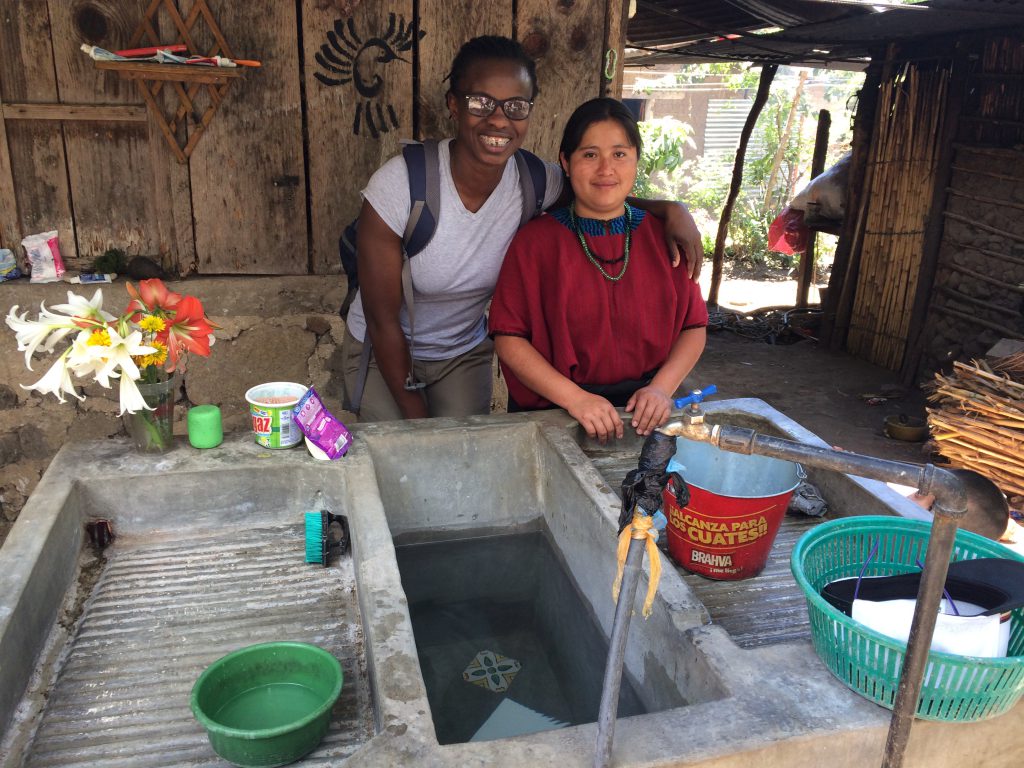This is the next in a series of posts by recipients of the Career Services Summer Funding Grant. We’ve asked funding recipients to reflect on their summer experiences and talk about the industries in which they’ve been spending their summer. You can read the entire series here.
This brief entry is by Akudo Ejelonu, MPU/MPES ’18
Water, sanitation, and hygiene (WASH) is a global initiative that focus on improving people’s access to clean water and sanitation, particularly to the millions of the people in the developing world who lack it. There are strong linkages between access to WASH and gender equality. In many countries including Guatemala, women and children are disproportionately affected by a lack of access to WASH and shoulder the largest burden in water collection. Having access to safe clean water and sanitation system is an imprint on household demands and public spaces. The first purpose of the summer project was to evaluate the effectiveness of the pour flush latrines to address waterborne disease in the indigenous Maya community of Tzununá, Solola, Guatemala. The second purpose is to investigate community perception and education of WASH through photo-elicitation sharing to record the social, personal meanings and values of hygiene and sanitation. We surveyed households, interviewed residents, and observed practices to explore how social norms and other health behavioral models can affect or explain communities understanding of water, sanitation and hygiene. Through the work, I learned that women’s full participation in water and sanitation projects is strongly correlated with effectiveness and sustainability of WASH projects. Empowering women helps communities achieve their health and financial benefits.


